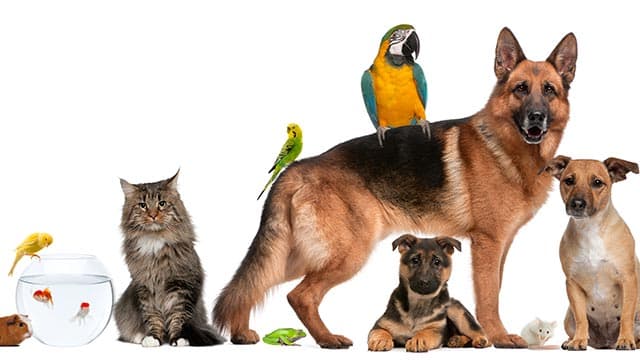Owning pets is a source of comfort and joy to people from all walks of life, and those with visual impairments are no exception.
Benefits to Owning Pets While Visually Impaired
Physical & Mental Benefits
Pet ownership has been linked to decreased blood pressure and cholesterol levels. Additionally, pet owners report reduced levels of loneliness and stress.
For many people, living with a visual impairment can feel inherently lonely at times, and the unconditional comfort of a pet can be an importance solace.
Socialization Benefits
Pets, particularly dogs, provide a great opportunity for visually impaired owners to increase their socialization with others. Dogs make great companions for a walk to the park, enjoying coffee at a sidewalk café, or stopping by a neighborhood barbeque.
Other Benefits
Guide dogs are specifically trained to lead visually impaired owners around obstacles. For many blind people, guide dogs are a critical key to independent living.
3 Questions to Consider Before Getting a Pet
If you have a visual impairment and considering becoming a pet owner, here are a few questions you may want to consider:
1. What is your capacity to care for a pet?
Pets require vastly different types of daily care. For example, many cats can happily survive so long as there is food, water, and a litterbox available to them, while many dogs require daily vigorous exercise and frequent bathroom breaks.
Finding a pet with care requirements that match the owner’s capacity is critical for all pet lovers, both those with disabilities and those without.
2. Can you spend time with a pet before making a final decision on ownership?
Whether you select a dog, a cat, a fish, or even a bird, it is important to make a decision that will positively impact your wellness and not add any additional stress to your life.
Try pet-sitting or spending time at a pet store; this may give you a stronger sense of the best type of pet for you.
While doing research on different types of animals is important, it is even better when you can do a “test run” and spend a day or two determining whether that type of pet would fit in with your life and daily needs.
3. What are your needs and how can a pet best support these needs?
Guide dogs are well known companions for many blind people, but these highly trained pets aren’t the only animals that can be helpful to a blind owner.
Animals are very smart and can easily sense your presence; they will learn to quickly move out of your way, or they’ll learn to announce their presence (for example: through a bark or a meow.)
If you have low vision, you may want to consider a bright florescent collar (or even a glow-in-the-dark collar) to make your pet more easily accessible.
If you’re fully blind, you may want to consider a collar with bells, so you can hear your pet and be alerted when they are near.
Pets are generally very smart and sensitive; they truly want to provide comfort and companionship and will do their best to be helpful to your needs.


I am disabled and am on SSI at the age of 59 with Fuchs Dystrophy. I need a pet to help me and can’t afford a pet. Where can I find some resources to help me? I can have cornea replacement surgery in both eyes but that surgery doesn’t always work and I have had so many surgeries that the surgeons are always hesitate about preforming and surgery on me. Can you please give me more information about a disability dog who can guide me through places which I cannot thoroughly see at this point and who will grow with my blindness when it is at it’s worse. May I please get some help? I love animals so much. I used to train wild birds and then sell them to families with little ones in the house. I loved doing it and it was a blessing to the families who needed a trained bird. Please help me.
Sincerely,
Geniene Olson
Heip me find a pet for my mother 92yrs old visually impaired lives alone good health
We recently formed a community for blind & vision impaired individuals who love cats. Please join us at https://www.facebook.com/groups/catownerscommunityfortheblind/
This is really cool Bethany!